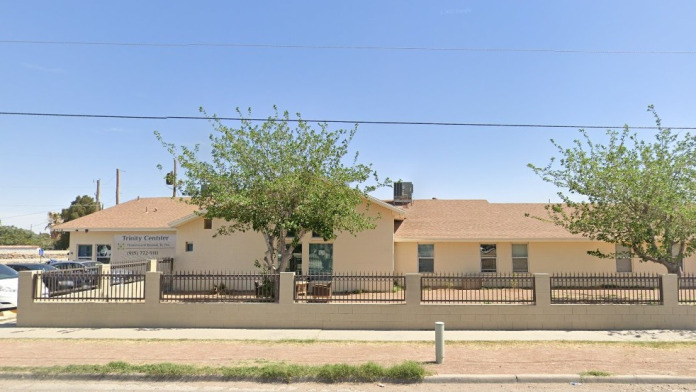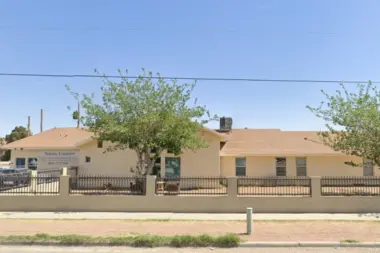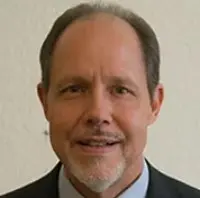About Homeward Bound
Homeward Bound in El Paso, Texas, offers detox, residential and outpatient substance use treatment. There’s also a crisis stabilization unit for emergency cases. They serve 25 counties throughout Texas. They’ve been serving Texans since 1980.
This facility accepts Medicaid, ITU Funds, and self-pay. They also provide payment assistance to clients in need.
I appreciate that they serve a wide variety of clients including veterans, LBGTQ+ clients, pregnant and postpartum women, trauma survivors, folks with HIV/AIDS, people with co-occurring disorders and clients referred from the court or judicial system.
Walk-in Detox Services in El Paso
I really like Homeward Bound’s unique detox program. They offer medically supervised withdrawal for alcohol, cocaine, opioids, methamphetamines, and benzodiazepines. What’s unique about their program is that admissions are on a first-come, first-served basis each weekday.
This makes accessing detox accessible to all community members. They also have a crisis stabilization unit for folks with dual-diagnosis issues who need mental health stabilization while they detox.
Homeward Bound’s residential treatment program focuses on teaching clients relapse prevention skills. They can accommodate up to 130 individuals. Each patient has a personalized care plan which could include cognitive behavioral therapy (CBT) and motivational interviewing.
When clients are ready, they can step down to either intensive or regular outpatient treatment. I like that the hours are flexible so that participants can maintain daily responsibilities at home.
The program has a varied response from former clients with the facility earning a mixed rating of 3.3 stars. Many clients say the staff was supportive and appreciate the assistance and support they got during their recovery.
Rehab Score
Gallery


Accepted Insurance
Other Forms of Payment
Self-pay involves paying for treatment out of your own pocket. You can use savings or credit, get a personal loan, or receive help from family and friends to fund your treatment. If you don't have insurance or your insurance plan doesn't cover a specific program, self-pay can help ensure you still get the care you need.
Financial aid can take many forms. Centers may have grants or scholarships available to clients who meet eligibility requirements. Programs that receive SAMHSA grants may have financial aid available for those who need treatment as well. Grants and scholarships can help you pai for treatment without having to repay.
Military members, veterans, and eligible dependents have access to specific insurance programs that help them get the care they need. TRICARE and VA insurance can help you access low cost or no cost addiction and mental health treatment. Programs that accept military insurance often have targeted treatment focused on the unique challenges military members, veterans, and their families face.
Medicaid is a state based program that helps lower-income individuals and families pay for healthcare. Medicaid covers addiction treatment so those enrolled can use their coverage to pay for rehab. When a program accepts Medicaid the client often pays very little or nothing out of their own pocket.
Addiction Treatments
Levels of Care
The outpatient program provides counseling, education, and peer support for mental health and substance use recovery. Clients can access services immediately after detox or inpatient care, with treatment lasting approximately three to four months across multiple locations in El Paso, Texas.
Homeward Bound’s inpatient services include mental health stabilization and dual diagnosis treatment, offering 24-hour care from mental health professionals. The program enhances coping and functional living skills, serving clients with chronic mental disorders or post-hospital stabilization.
The intensive outpatient program features group sessions on Mondays, Tuesdays, and Thursdays from 5 p.m. to 7 p.m., focusing on addiction and mental health recovery. Intake is by appointment, with treatment typically lasting three to four months, supporting recovery in the El Paso area.
Homeward Bound’s aftercare program offers ongoing counseling, education, and peer support to sustain recovery. It includes wellness planning and community resource connection, helping clients maintain progress after completing initial treatment, with services tailored to individual needs.
The 12-Step program at Homeward Bound complements outpatient treatment by fostering ongoing recovery support. Clients learn about addiction and develop coping skills through evidence-based curricula, with the program typically lasting three to four months to promote sustained sobriety.
The crisis intervention program provides 24-hour care for clients with mental health diagnoses such as bipolar disorder or schizophrenia. It includes psychiatric medication management, skills groups, and treatment planning, supporting stabilization and connection to ongoing support systems in El Paso.
The Partial Hospitalization Program offers tailored mental health treatment, including assessment, therapy, and medication management, in a low-stress environment. It supports clients transitioning from inpatient care, with services designed to improve coping skills and functional living.
Homeward Bound provides medically monitored detoxification for alcohol, opiates, and benzodiazepines, ensuring safe withdrawal under 24/7 medical supervision. The detox program typically lasts 5 to 7 days, supporting safe detox treatment in El Paso’s local detox facilities.
Treatments
Homeward Bound offers outpatient counseling, education, and peer support for individuals seeking alcohol recovery. The program emphasizes developing coping skills through evidence-based curricula and introduces participants to 12-Step programs, typically lasting three to four months, supporting long-term alcohol addiction treatment in El Paso, Texas.
The facility provides outpatient drug addiction services, including counseling, education, and peer support, to promote recovery. Clients learn about addiction and develop coping skills via an evidence-based curriculum, with an introduction to 12-Step programs, in a treatment plan lasting approximately three to four months.
Homeward Bound’s outpatient services include dual diagnosis treatment, offering counseling, education, and peer support for individuals managing both mental health and substance use disorders. The program integrates evidence-based recovery curricula and introduces 12-Step programs to support comprehensive mental health and addiction recovery.
The outpatient program addresses opioid addiction through counseling, education, and peer support, helping clients develop coping skills and understanding of recovery. An introduction to 12-Step programs is included, with treatment durations of three to four months, supporting opioid recovery in El Paso.
Homeward Bound offers outpatient substance abuse treatment, including counseling, education, and peer support, to aid individuals in addiction recovery. The program emphasizes developing coping skills through evidence-based curricula and introduces 12-Step programs over a three to four-month period.
Programs
The adult outpatient program offers counseling, education, and peer support for individuals managing mental health and substance use recovery. Clients can access services immediately after detox or inpatient care, with treatment lasting three to four months, tailored to individual recovery needs.
This program provides outpatient counseling, education, and peer support specifically for young adults, focusing on developing coping skills and functional living. The program typically lasts three to four months, helping young clients stabilize and recover in El Paso.
Homeward Bound’s LGBTQ outpatient program offers tailored mental health and substance use treatment, including counseling and peer support. The program emphasizes developing coping skills and recovery strategies, with a treatment duration of approximately three to four months.
The military-focused outpatient program provides specialized mental health and substance use treatment, including counseling and peer support. It aims to enhance coping skills and recovery, serving military personnel and veterans in the El Paso area with tailored treatment plans.
Clinical Services
The goal of cognitive behavioral therapy (CBT) in Texas is to change thought patterns, which leads to changes in behavior. Specific techniques during CBT can include self talk, SMART goals, journaling, and positive activities.
Group therapy is any therapeutic work that happens in a group (not one-on-one). There are a number of different group therapy modalities, including support groups, experiential therapy, psycho-education, and more. Group therapy involves treatment as well as processing interaction between group members.
Individual therapy offers you a confidential space to address the complexities of your drug or alcohol addiction. Your therapist guides these personalized sessions to help develop self awareness and manage stress. This promotes sustained sobriety and overall well being.
Therapy sessions that incorporate motivational interviewing focus on OARS: open questions, affirmation, reflections, and summarizing. This facilitates an exchange of information and an empowering of the client to decide for themselves what changes might need to be made in their lives.
Trauma therapy addresses traumatic incidents from a client's past that are likely affecting their present-day experience. Trauma is often one of the primary triggers and potential causes of addiction, and can stem from child sexual abuse, domestic violence, having a parent with a mental illness, losing one or both parents at a young age, teenage or adult sexual assault, or any number of other factors. The purpose of trauma therapy is to allow a patient to process trauma and move through and past it, with the help of trained and compassionate mental health professionals.
Research clearly demonstrates that recovery is far more successful and sustainable when loved ones like family members participate in rehab and substance abuse treatment. Genetic factors may be at play when it comes to drug and alcohol addiction, as well as mental health issues. Family dynamics often play a critical role in addiction triggers, and if properly educated, family members can be a strong source of support when it comes to rehabilitation.
The right life skills training will help you build the skills you need for recovery. You'll learn how to solve problems, improve your social life, enhance your mental health, and make good decisions. This is a key component of drug rehab programs in Texas.
Experiential therapy in Texas can look different for each person. You may engage in fitness activities, community service, culinary arts, or art therapy, for example. The goal is to provide a safe setting where you can interact with your environment and work through emotions and experiences with the help of that activity and the guidance of a therapist.
Staff

Doug Denton, MA, LCDC
Executive Director

Jeffery R Fuller, MDiv, LCDC
Assistant Director and Director of Outpatient Services and Human Resources Director
Contact Information
8716 Independence Dr
El Paso, TX 79907





